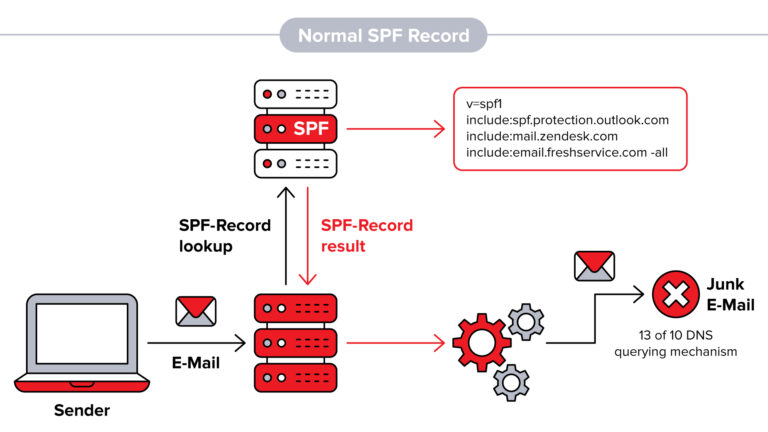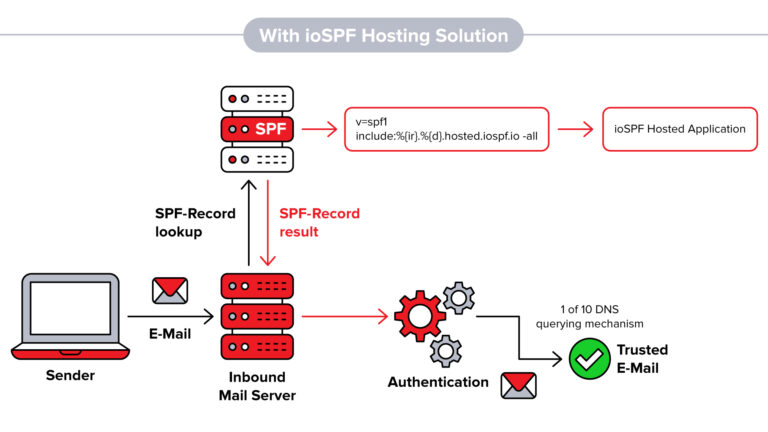ioSPF hosted solution is based on SPF macros, also known as SPF variables or macro expansions, are a feature within the Sender Policy Framework (SPF) specification that allows for the creation of dynamic SPF records. They provide a way to include additional information or dynamically generate values within SPF records.
SPF macros are used to substitute specific values within an SPF record based on the context of the email being sent. They allow for more flexibility and customization in SPF record creation. Here are a few commonly used SPF macros:
%{ir} – The “ir” macro is used to represent the domain name of the current SMTP client (connecting IP address reversed) during the SPF check. These macros allow the SPF record to include information about the sending domain or IP address being evaluated.
%{d} – The “d” macro represents the domain name taken from the “HELO/EHLO” (SMTP greeting) command issued by the sending server. It allows the SPF record to incorporate the domain used in the initial SMTP handshake.
Some benefits with SPF Macro:
-
Improved readability and maintainability: SPF macros allow you to define common sets of directives once and reference them multiple times within your SPF record. This makes your record more concise, easier to read, and less prone to errors. It also simplifies the process of updating or modifying SPF directives, as you only need to make changes in one place (the macro definition) instead of updating every occurrence throughout the record.
-
Enhanced flexibility: With SPF macros, you can define complex sets of SPF directives and use them in different contexts within your record. This allows you to customize SPF behavior based on specific requirements or scenarios. For example, you can define a macro for different sets of IP addresses or domains and use them selectively based on the sender or recipient’s domain.
-
Centralized management: SPF macros promote centralized management of SPF records. By defining macros for common directives, you can establish a consistent policy across multiple domains or subdomains within your organization. This simplifies administration and reduces the chance of discrepancies or misconfigurations across different SPF records.
-
Easy policy updates: If you need to update your SPF policy, such as adding or removing authorized mail servers, SPF macros streamline the process. Instead of manually editing every occurrence of the directive, you only need to modify the macro definition, and the changes will propagate automatically throughout your SPF record.
-
Encourages best practices: SPF macros encourage adherence to best practices in SPF record management. By modularizing your SPF record and reusing macros, you reduce the risk of introducing errors or overlooking important SPF directives. It also promotes consistent policy enforcement and reduces the likelihood of misconfigurations that could lead to email delivery issues or unauthorized use of your domain.
- Hackers / malicious entities are not able to see your autorized senders list in the public DNS.
Overall, ioSPF hosted solution provide a powerful tool for managing SPF records effectively, improving readability, flexibility, and maintainability. They help streamline policy updates and support centralized management, enabling you to maintain secure and reliable email delivery for your domain.

